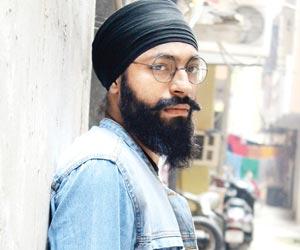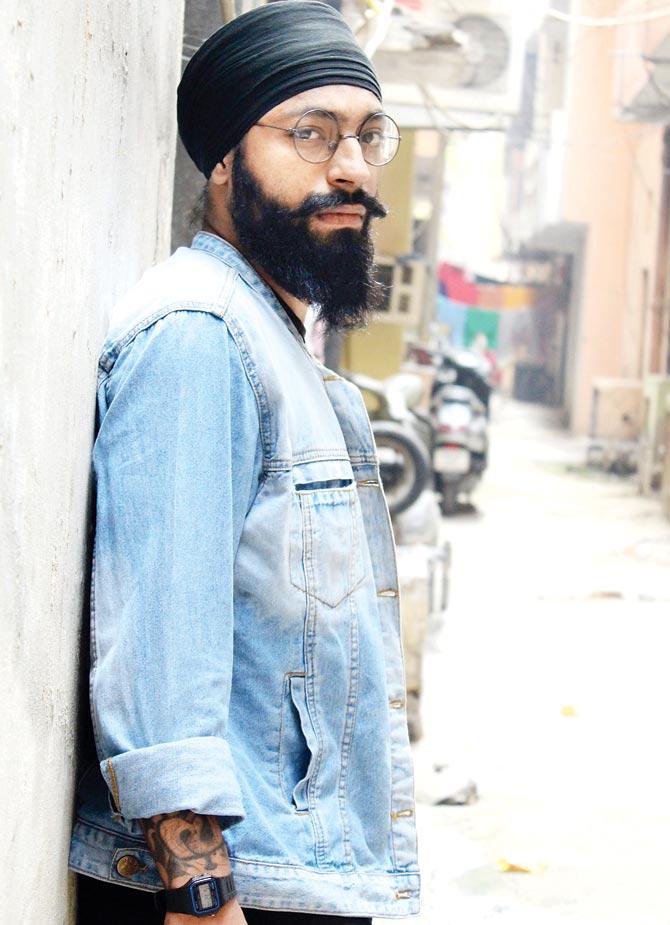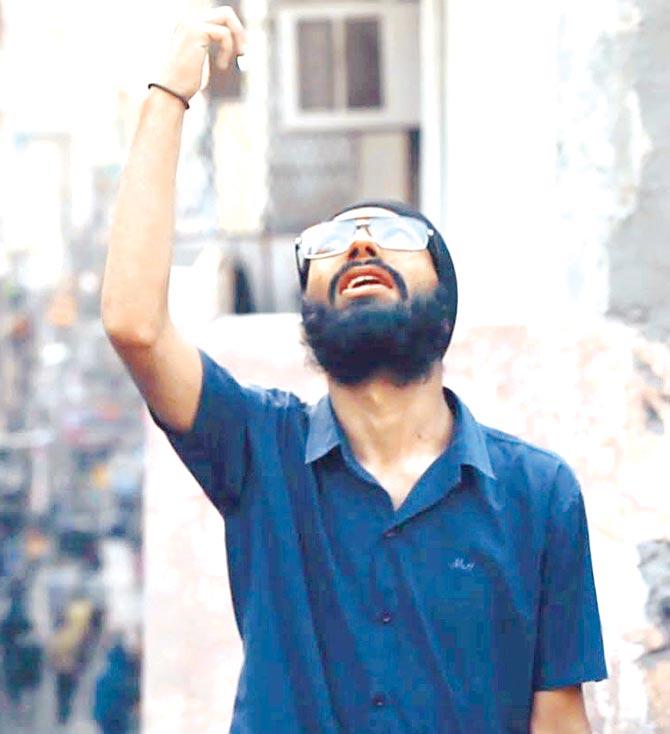Prabh Deep plans to clean the gullies of his Delhi locality of drugs, one rap song at a time

Writtingrap is my way of letting my emotions out," rapper/songwriter Prabh Deep tells us. "Some days, I wake up really pi***d off. It could lead to me being short tempered. So, now, I write first, letting the negativity out of my body. It helps me make better decisions." The early-in-the-day practise has also made him an artist to listen out for.
ADVERTISEMENT

A still from his song Feel Me; Prabh Deep lives in Tilak Nagar, Delhi, which was one of the worst affected areas during the 1984 riots. Pic/Ajay Gautam
His album with Sez On The Beat, Class-Sikh, which dropped last week [available on all digital platforms], is a gem thanks to his his lyrical musings, and powerful rap vocals. He is currently busy touring the country, first with UK rapper Lady Leshurr for the hip-hop initiative Bira 91 FreeFlow, and then for personal gigs. In a country that's embracing hip hop in a big way, with names like Divine and Naezy making a mark, Prabh is creating a niche of his own.
The 23-year-old was raised in the Delhi neighbourhood of Tilak Nagar, known for being one of worst affected during the 1984 Sikh Riots. It recently started gaining infamy for rampant drug use among its youth. Both the subjects echo in his music. "Nobody talks about it, as it's a sore point. My father lived through 1984. So now, he doesn't care a damn about the police or government. I think I get that from him." His family, which is made up of his mom and dad who run a fashion boutique and sister, a make-up artist, is also his toughest audience. "It's a family that watches Saavdhan India, so they don't get my songs. I am trying to please them and make sure they get my message, because if I can get to them, I can get to anyone. They are the ultimate test."

His songs also talk about young men getting addicted to drugs in the gullies, and when we talk about how that's not very different from the youth of the indie music industry, he agrees. "The point is, that most indie musicians are priveleged. They have the means to get intoxicated, and have the liberty to enjoy them. In my neighbourhood, which is a lower middle class one, people have sold their homes for drugs. So it affects them in a much greater way." His album deals with his journey through these gullies — as he says it's about escaping them, quitting drugs, not being a loafer, and then eventually coming back to the streets, and trying to make a change.
And inspire he does. His fans often accost him so that he can listen to their tracks and offer some career advice. He has only one, "keep making music. If it's good, it will get heard." Ask him if he will ever leave Tilak Nagar, and he says, no. "I still roam the streets like a loafer, in my pyjamas and flip flops. Friends tell me 'you are on a Billboard now, dress up!' and I say I can't change. If I change, shift out of here, my rapping will go away."
His next song is about an issue that's being troubling him —one of consent between men and women. "I have become very conscious about my interactions with women, especially after what happened at High Spirits, Pune. I get girls much more easily now that I am successful, and people have been telling me, that maybe I come across the same way, that maybe I, too, objectify women. But I don't. I am very sure about that, and I think both men and women feel desire the same way. So, maybe, when I have thought enough about this and need to get it out, there will be a song about consent."
 Subscribe today by clicking the link and stay updated with the latest news!" Click here!
Subscribe today by clicking the link and stay updated with the latest news!" Click here!






